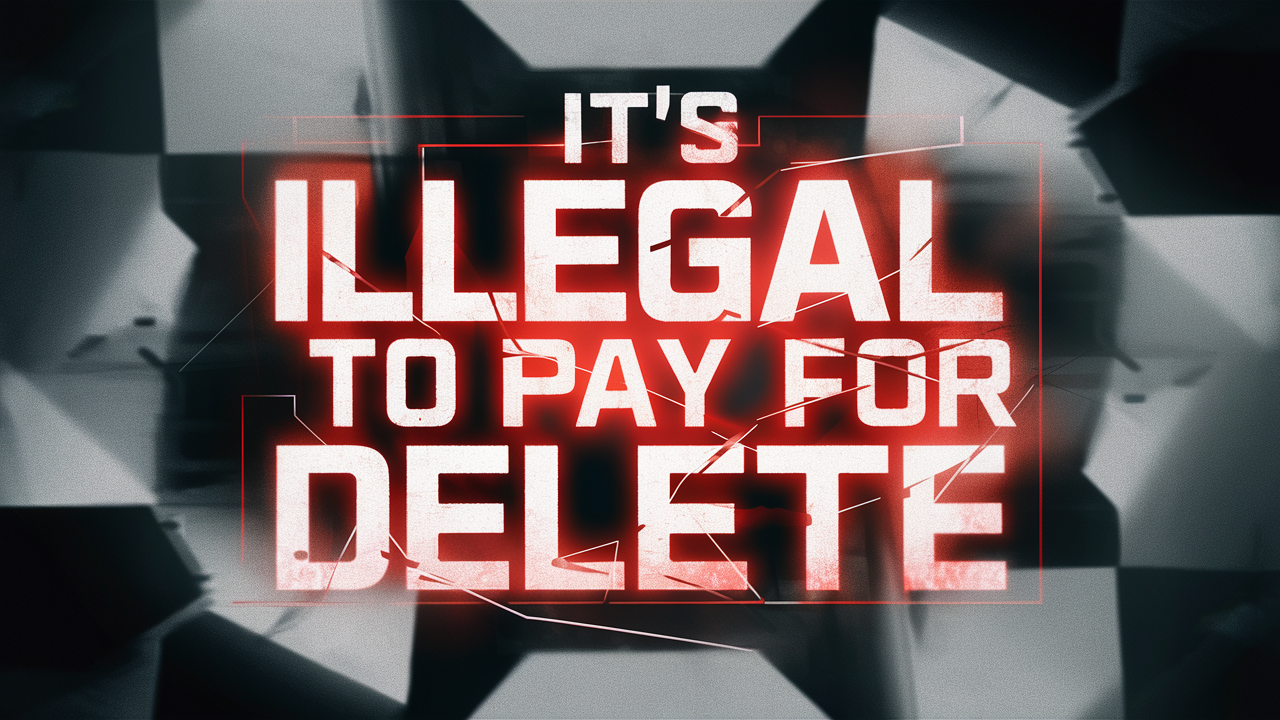-
Posted on: 16 Jul 2024

-
Is It Illegal to Pay for Delete?
Many times while handling credit scores, people refer to the phrase "pay for delete." Under this approach, bad information from credit reports is removed in return for money by negotiating with collectors or creditors. Legal-wise, nevertheless, is "pay for delete"? Anyone trying to raise their credit score has to first understand the ethical and legal consequences of this behavior. This page explores the legality of "pay for delete," its ramifications, and substitute approaches for raising creditworthiness.
What Is "Pay for Delete"?
An agreement known as "pay for delete" is when a debtor agrees to pay a part or the whole amount of a debt in return for the creditor or collection agency deleting negative debt information from the debtor's credit report. Often used to clear records of late payments, defaults, or collection accounts damaging credit ratings in this procedure.
The Legal Perspective
1. Fair Credit Reporting Act (FCRA)
Information entered into credit bureaus must be accurate and comprehensive, according to the Fair Credit Reporting Act. Although the FCRA forbids "pay for delete" arrangements specifically, it mandates that credit report data be accurate. This legally requires creditors and collection agents to submit correct information. Therefore, they could be breaking the FCRA's spirit if they erase unfavorable but true material because of a "pay for delete" arrangement.
2. Credit Reporting Policies
Credit Reporting Most of the big credit bureau, such ass Experian, TransUnion, Equifax—follow rigorous reporting rules. Because "pay for delete" affects the integrity of the credit reporting system, these rules usually oppose it. Although not unlawful, credit bureaus view "pay for delete" deals negatively, which might cause problems for creditors and collection agents over possible compliance.
3. Enforceability
A "pay for delete" arrangement does not legally ensure that the creditor or collection agency will honor their agreement. These agreements are not legally enforceable contracts, hence, creditors run the danger of accepting payment and yet reporting the bad information or of declining to record the deletion upon payment.
Ethical Considerations
Eliminating accurate negative material using "pay for delete" begs ethical questions. Credit reports are meant to fairly depict a person's credit history. Through "pay for delete," people and creditors impair the integrity and openness of credit records, therefore possibly deceiving lenders depending on these reports on creditworthiness.
Alternatives to "Pay for Delete"
- Argument Over False Information Consumers are entitled under the FCRA to challenge any erroneous information on their credit records. See the credit bureaus to fix any mistakes; this will raise your credit score without resorting to morally dubious behavior.
- Bargain for Resolutions. Rather than looking for "pay for delete," think about working with your creditor or collection agency on a settlement. Although unfavorable information on your credit record could be there, a debt settlement shows your will to pay back your commitments and helps to stop further negative reporting.
- Positive Corrections If you have a solid cause, like a brief financial crisis, some creditors might agree to have bad information deleted as a goodwill gesture. Write a goodwill letter to the creditor outlining your circumstances and asking the bad item to be deleted. This is ethical and lawful even if success is not assured.
- Plans for Managing Debt By enrolling in a debt management plan (DMP) with a credit counseling organization, you may more successfully handle your debt. Although a DMP cannot eliminate bad information from your credit record, it will help you pay off debt and show good financial conduct, therefore gradually raising your credit score.
Conclusion
"Pay for delete" runs in a murky legal zone. Although not specifically unlawful, it goes against the ideas of fair and accurate credit reporting. For creditors and collection companies, "pay for delete" might generate ethical questions and possible regulatory problems.
Those trying to raise their credit ratings should weigh moral and legal options, including challenging erroneous information, negotiating settlements, asking for goodwill changes, and using debt management strategies. Focusing on these techniques helps people create a better credit history and responsibly raise their credit ratings. Recall that keeping fair and accurate credit reporting policies helps not only people but also the integrity of the whole credit system.
Call now for expert credit repair services: (888) 803-7889










